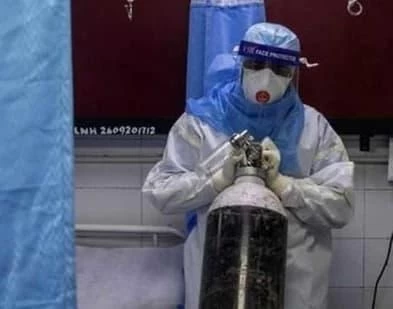Lucknow: A study led by the Indian Institute of Technology (IIT)-Kanpur discovered that hospitals could have avoided 10-15% oxygen wastage during the peak of the second wave of the Covid pandemic in Uttar Pradesh, which saw a high demand for oxygen and complaints about a lack of supply.
The study, which was conducted at 57 medical colleges throughout the state, discovered that improper use of oxygen-related equipment and leakage from an oxygen mask or nozzle could have been avoided if the medical staff had been more cautious.
It should be noted that the UP government requested that the study be conducted by IIT-Kanpur and other institutions.
“We have sent the report to the state government. While we were involved with the development of the portal, data entry and analysis, several other institutes like SGPGI in Lucknow, HBTU, AKTU, the Banaras Hindu University (BHU) and others helped in data collection. The data was collected on a daily basis from the 57 medical colleges for nearly 45 days – from May 3 this year,” Manindra Agarwal, Deputy Director of IIT-Kanpur, stated.
“After the state government asked us to conduct the study, a portal was developed by our Computer Science Department. The medical colleges were told to upload data of the number of patients, oxygen requirement based on the patient’s condition and the oxygen used on the portal on a daily basis. The medical colleges were also uploading data on the number of patients in ICU or on ventilator support,” he added.
According to a comparative study, approximately 20% of hospitals were wasting a significant amount of liquid medical oxygen.
“Out of the total oxygen supply, we found that around 10-15 per cent was wasted. This could have been caused due to improper use of oxygen-related equipment, leakage from the oxygen mask or nozzle. These things could have been avoided if the medical staff was more careful and many more lives could have been saved,” he further added.


